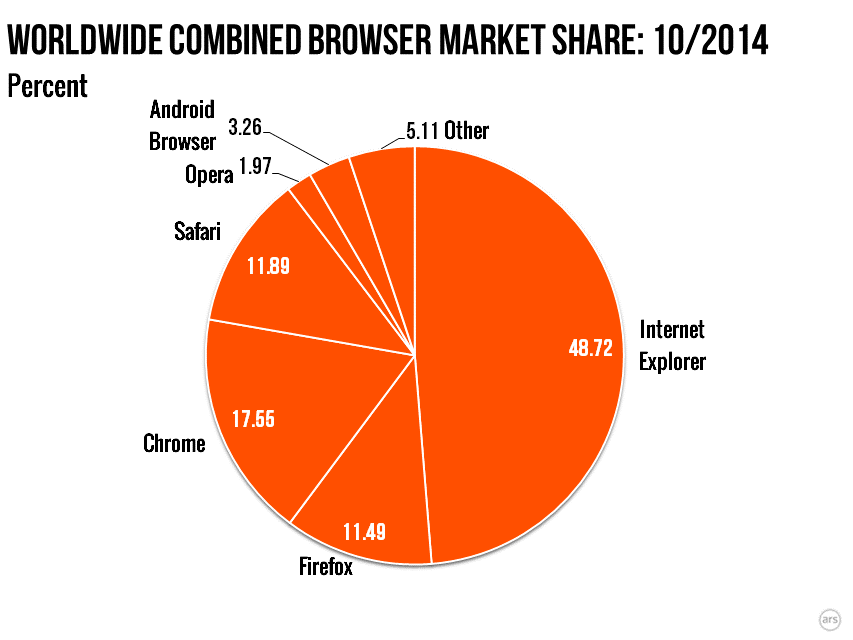
Normally around the first of the month, we publish a post looking at the usage share of operating systems and Web browsers. But our post this month has been delayed because of unresolved questions about the data source we normally use.
The data shows a huge leap for Internet Explorer 11 and Windows 8.1 (up about seven percentage points each), at the expense of Internet Explorer 8 and Windows XP (down by about the same margin). So at the time it came in, we refrained from publishing because we that felt such a large swing in a single month was implausible.
Since then, Net Applications, the company that collects the data, has provided a little information on what happened. Net Applications differs from most other browser usage sites by attempting to correct for certain data collection imbalances. Browser usage shows various kinds of national trends. A site that has an overwhelming majority of US visitors might provide useful data on browser usage in the US, but it will offer little insight into browser usage in China, for example. Extrapolating worldwide estimates from this data would then be problematic because the usage patterns in the rest of the world do not match those of China.
Net Applications tries to make up for these sampling concerns by scaling the raw proportions by estimates of the Internet-using population in each country.
So what happened in October? Net Applications writes:
Why these publishers have been deemed "not appropriate" is less clear. The company has told us that reasons for exclusion include targeting a specific technology (in other words, if a site is onlyaccessible in Internet Explorer 6, it shouldn't be included in the data, as obviously its sampling will not be representative of normal usage), and high traffic from "bots, toolbars, or other automated methods."
Unfortunately, the company won't be more specific and has not provided updated data for previous months to accommodate this change. As a result, October appears to show a massive swing that is masking the true movements.
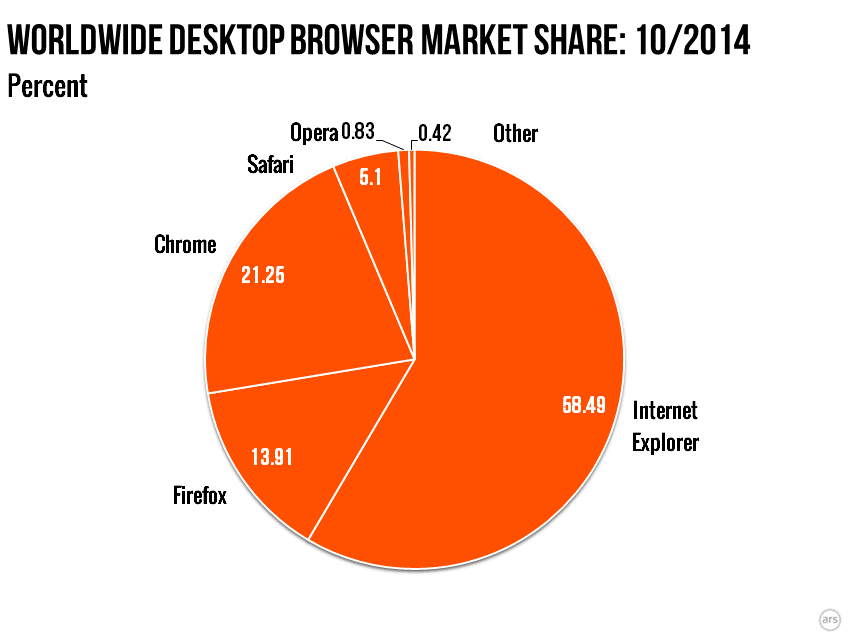
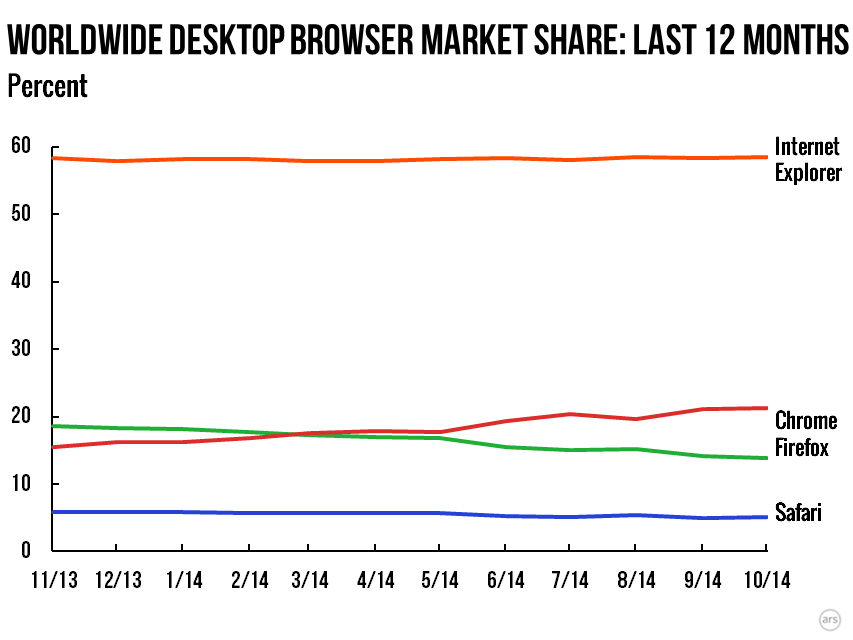
Surprisingly, even with the large swings, we see for Internet Explorer versions and Windows versions, the overall trends are little altered. Internet Explorer is up 0.12 points, Firefox down 0.27 points, Chrome up 0.06 points, and Safari up 0.09 points.
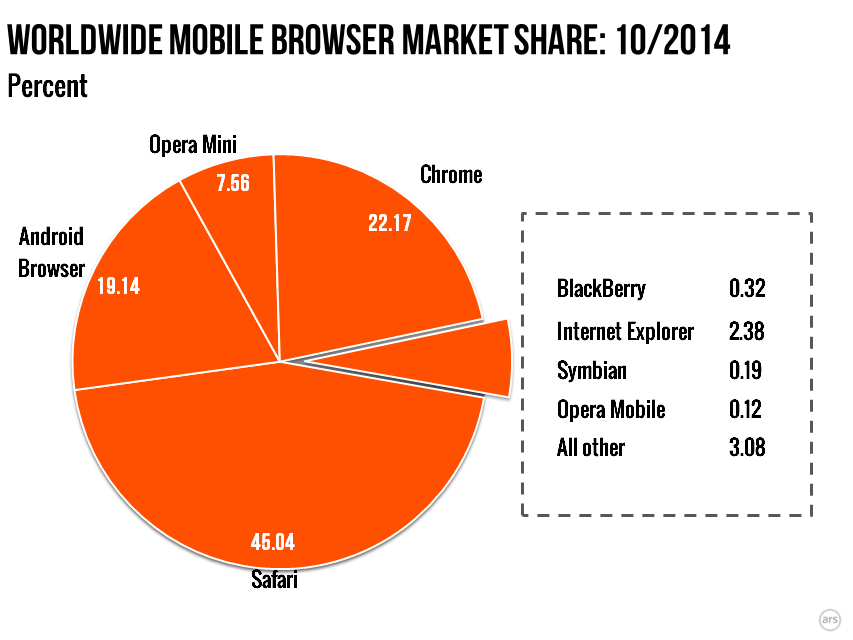
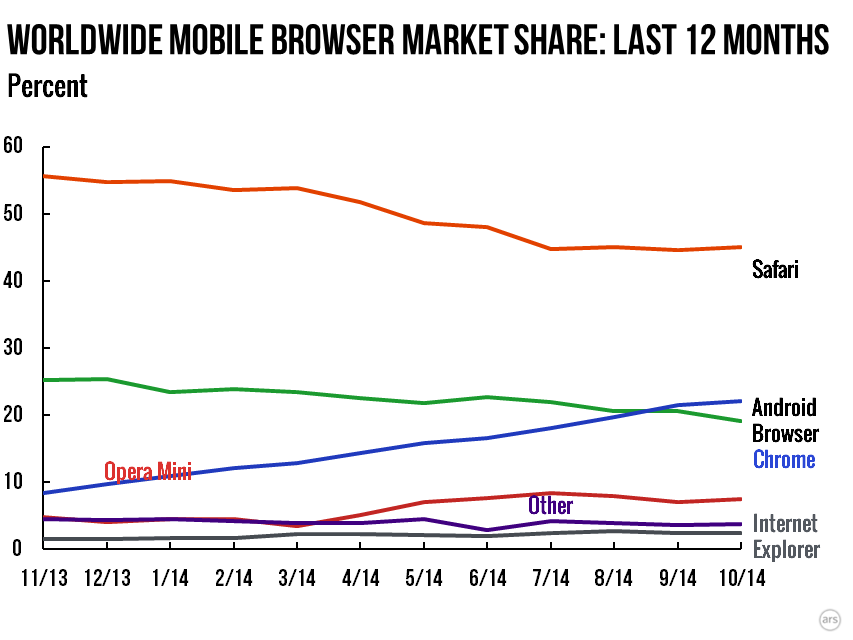
In mobile, the move from Android Browser to Chrome is continuing. Safari is up 0.41 points, Chrome is up 0.69 points, and Android Browser is down 1.56 points. Opera Mini also rose, gaining 0.45 points.
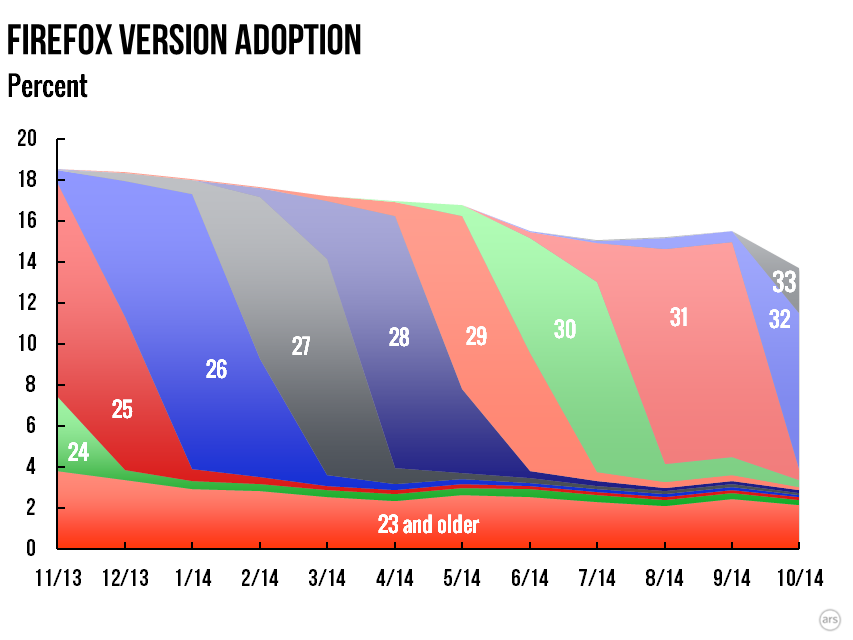
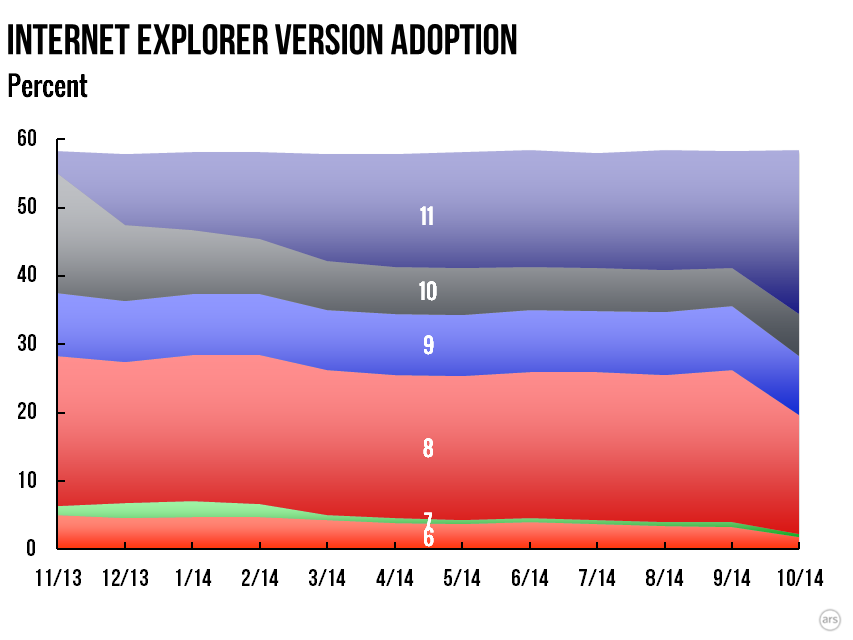
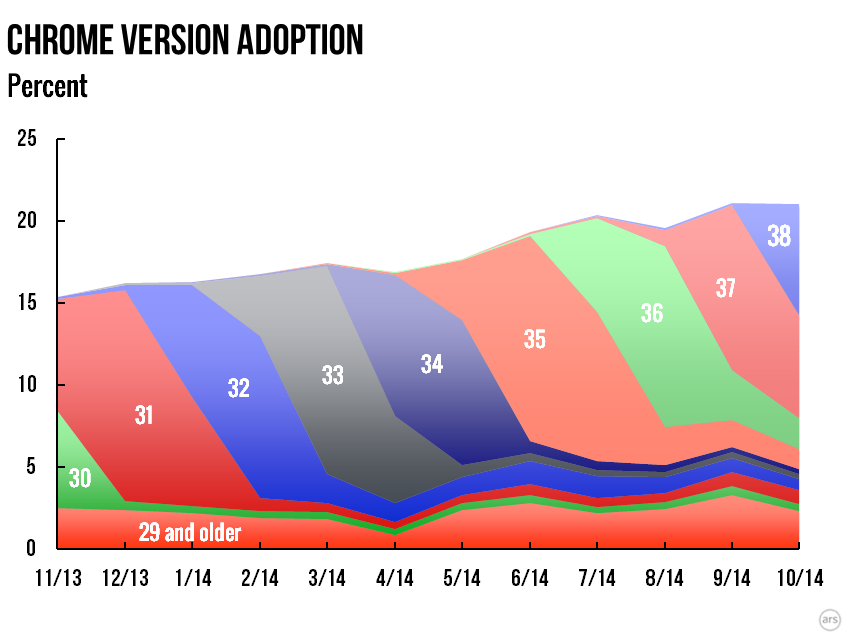
Obviously the big change here is the much greater representation of Internet Explorer 11. In what can only be good news for Web developers and the Web as a whole, the Chinese adjustment has made Internet Explorer 11 the most widely used individual browser version on the Web. Internet Explorer 6 is also much closer to obliteration than it previously appeared.

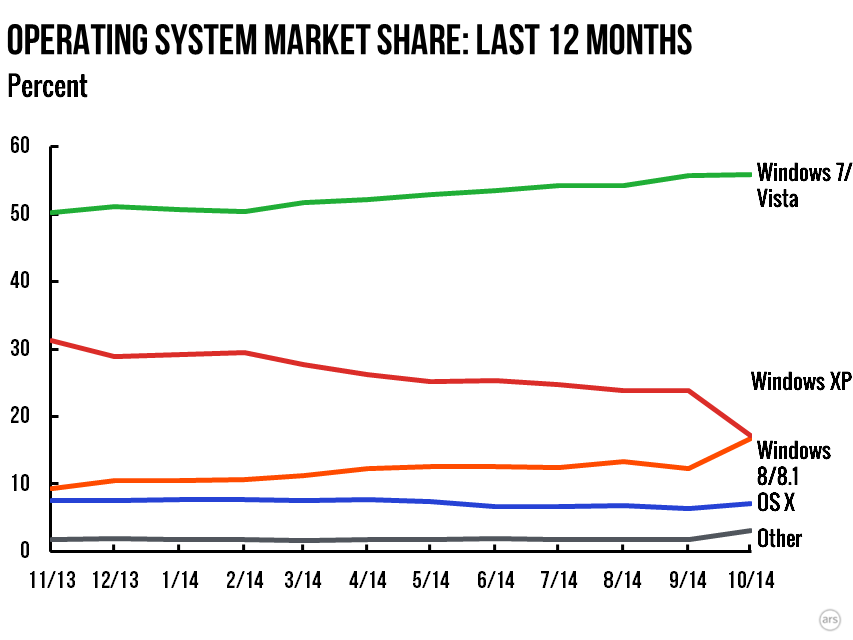
The operating system usage similarly shows a big swing from the data collection changes. With Windows XP and Windows 8.1 both showing big corrections—the former down by 6.69 points, the latter up by 4.25 points—Microsoft's latest operating system is looking quite a bit healthier. Its share is finally close to passing that of the 2001 relic.














No comments:
Post a Comment